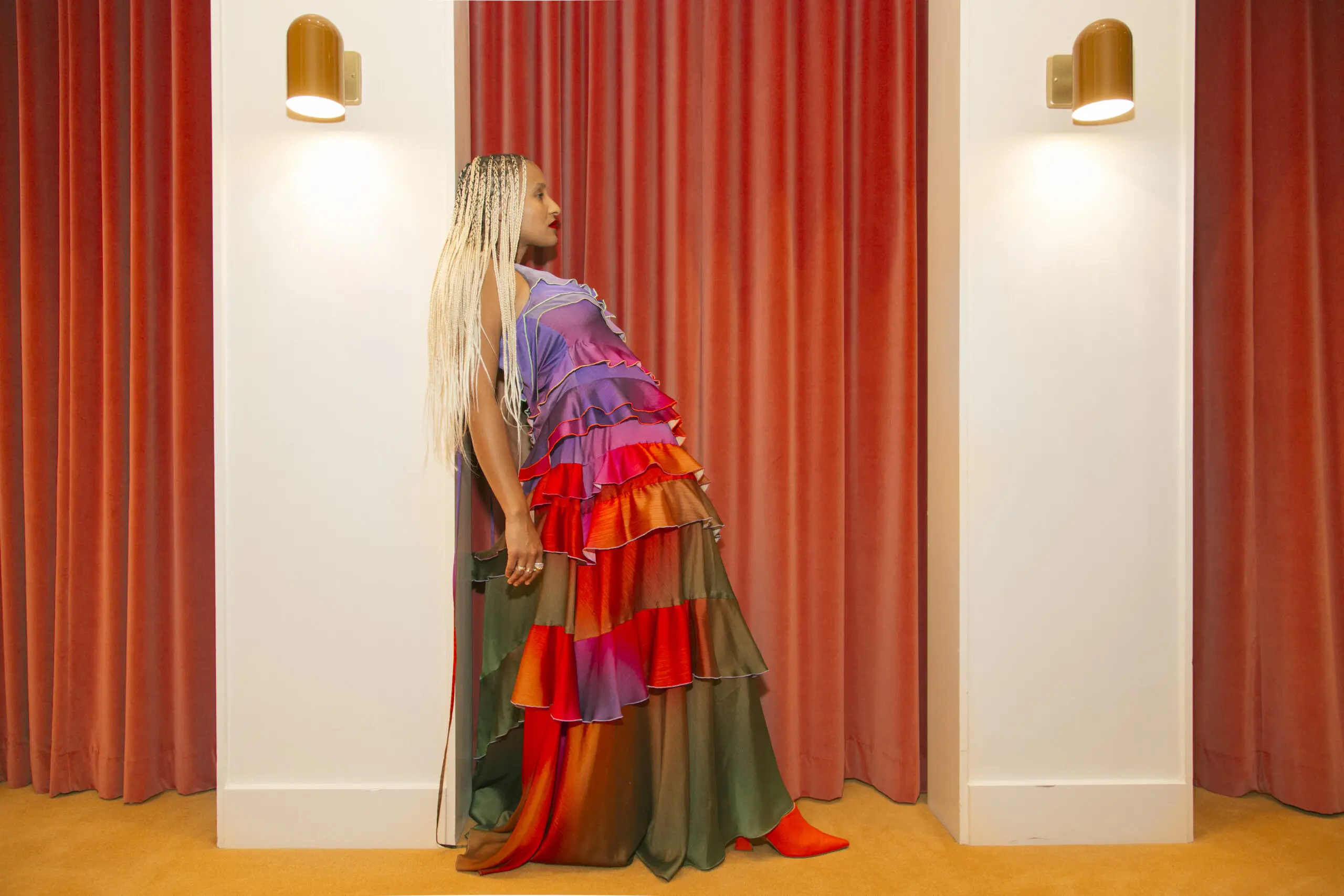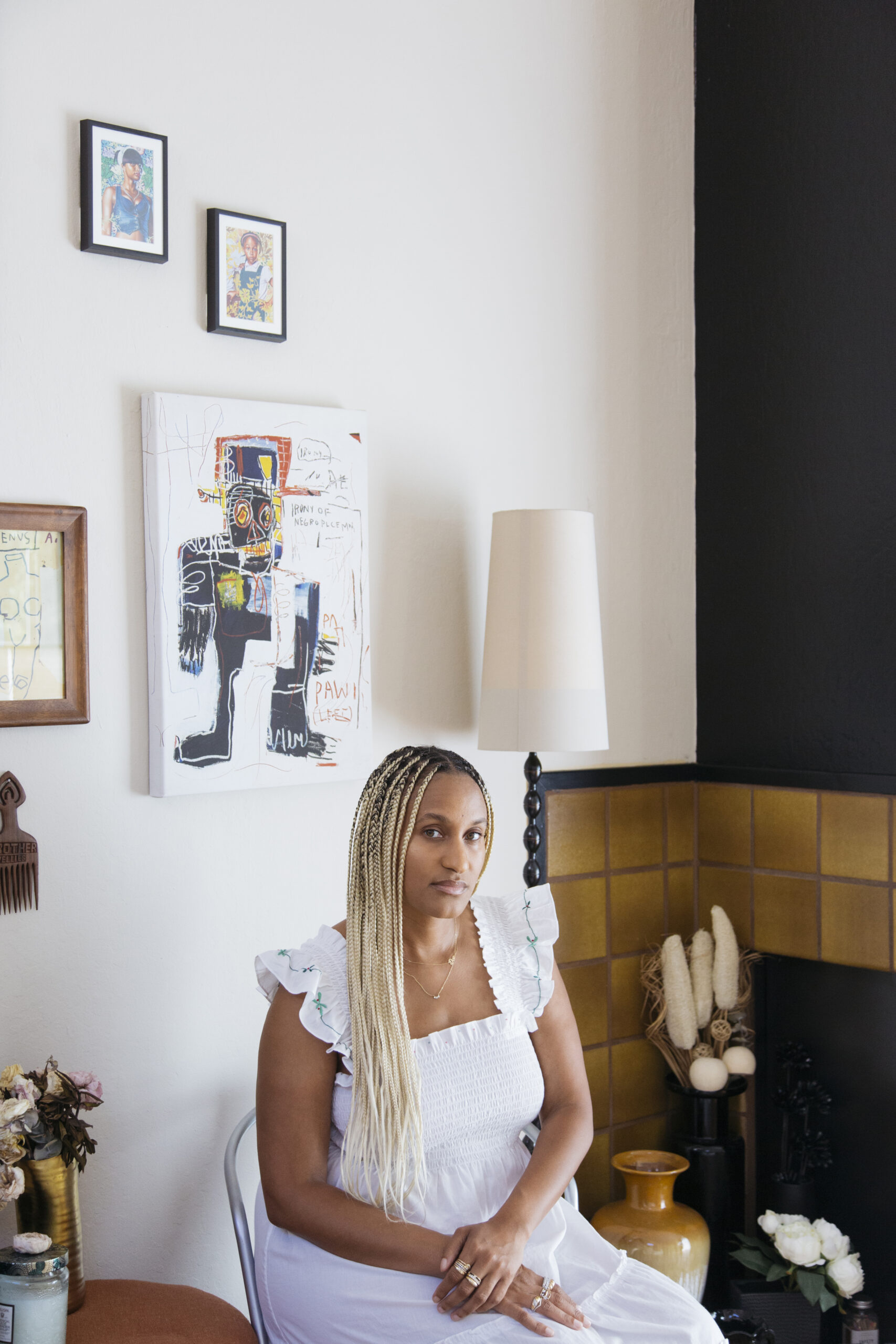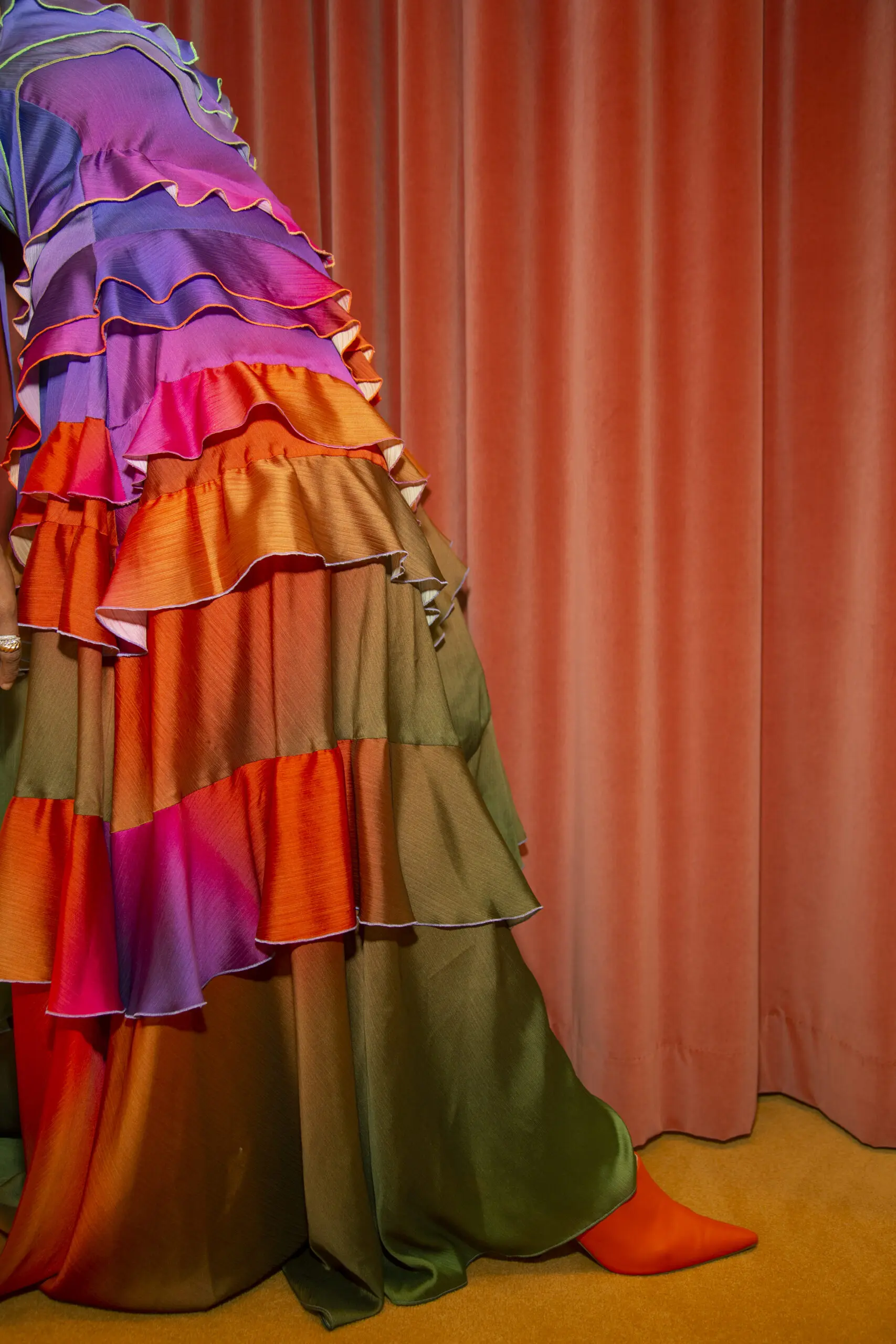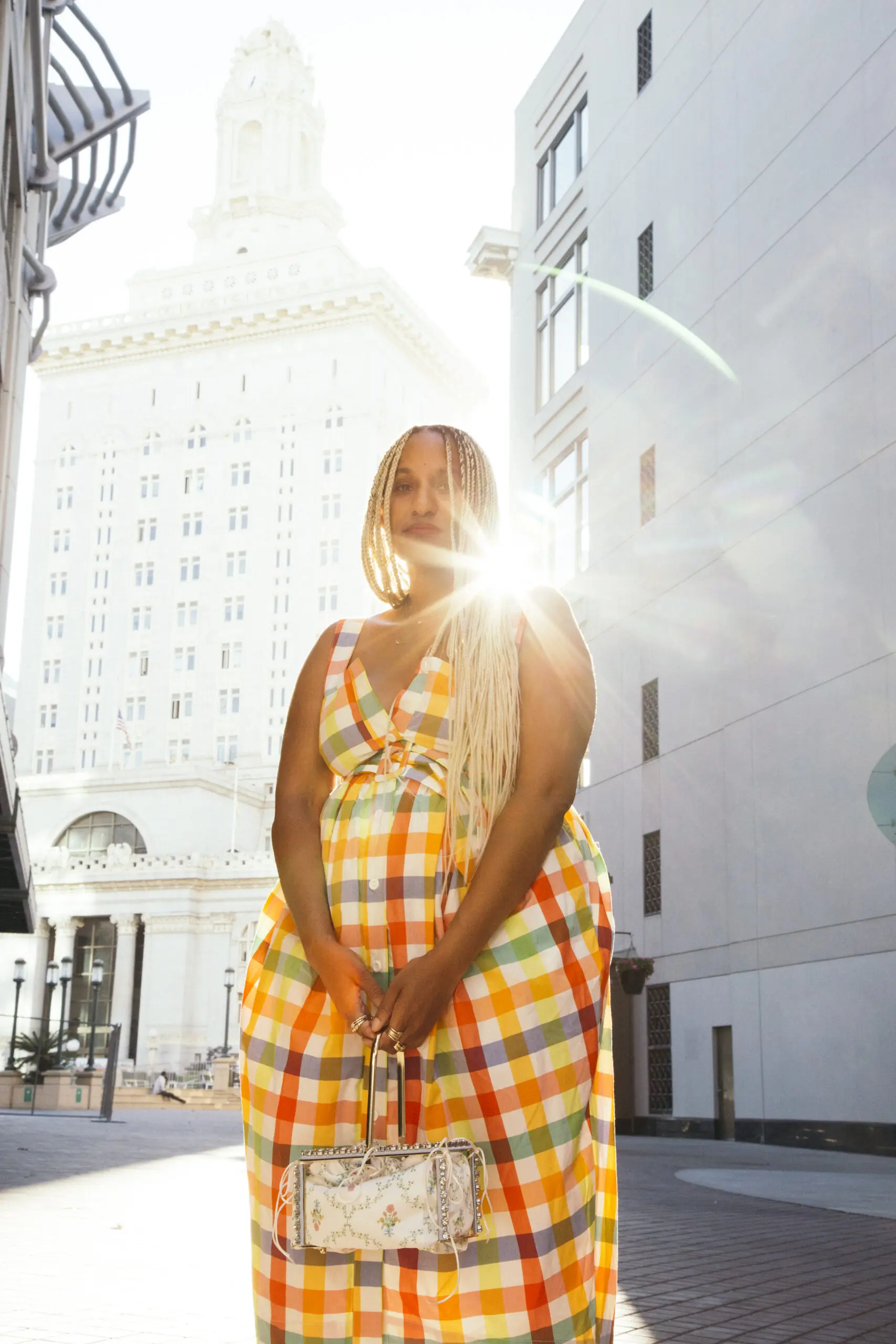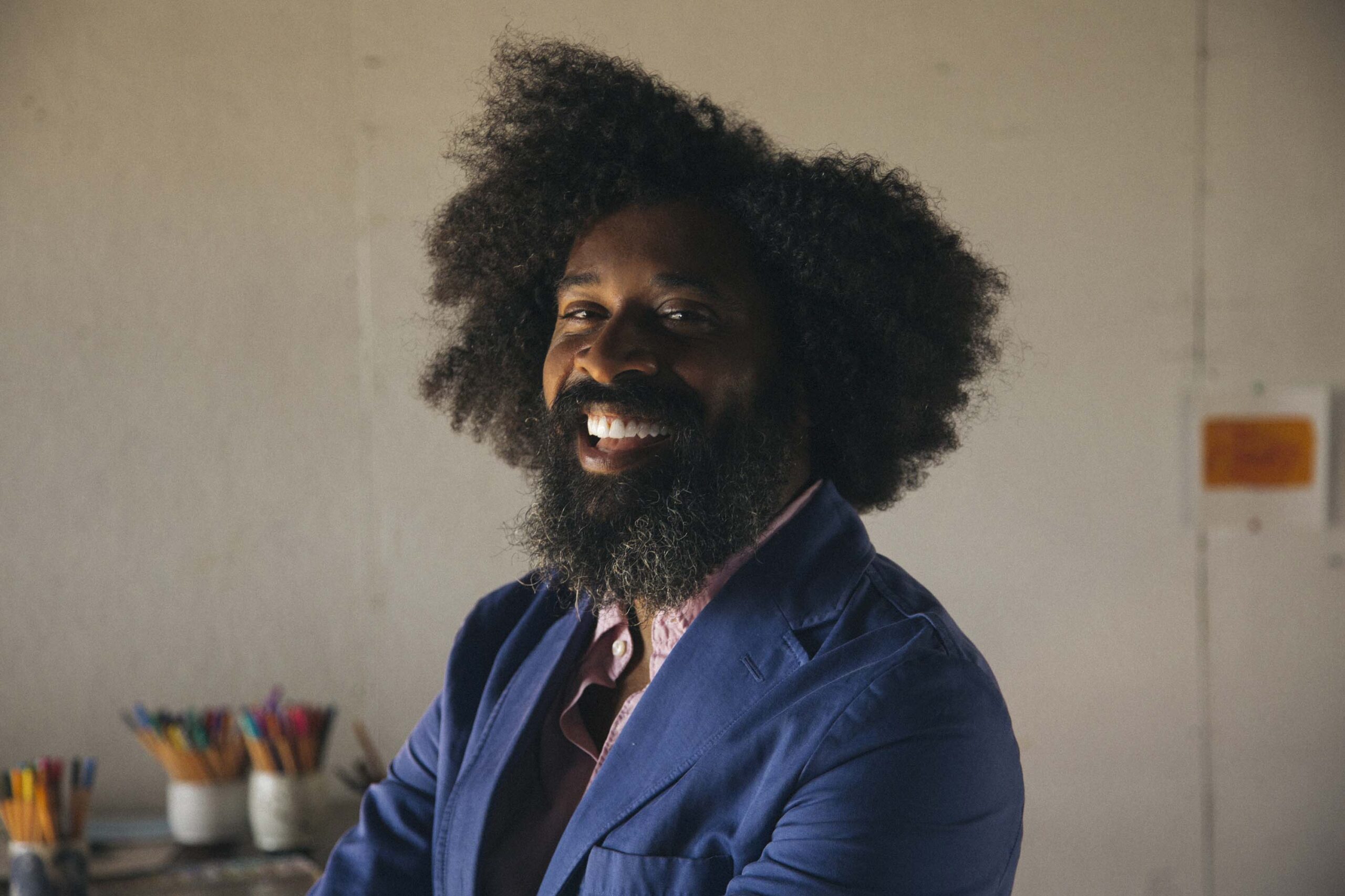Meet Our Neighbor, Dr. Akilah Cadet
Words by Matthew Ininns
Images by Anna-Alexia Basile
The end goal for Dr. Akilah Cadet is belonging.

Belonging, she once told Forbes, is “the end goal of diversity, equity, and inclusion.” She’s been quoted widely as an expert on the topic, particularly as it plays out in the workplace, in everything from Cosmo and Vogue Business to the Black News Channel and the Wall Street Journal.
This drive for belonging, to create the possibility everyone might belong, extends to everything she touches: Her firm’s daily work in dismantling white supremacy, the stories she tells, the difficult conversations she hosts, the community she fosters, and the one where she thrives: Oakland, California.
Motivated by her own experiences of racism in the workplace and the ongoing discrimination she faces, Dr. Cadet founded Change Cadet in 2015. (Both the doctor and the organization pronounce it in the French, cuh-DAY, evidence of her Haitian heritage.)
A diversity and organizational development consulting firm, Change Cadet utilizes a wealth of strategies — including coaching, board development, workshops, and content creation — to foster cultures of belonging in the workplace, particularly for BIPOC and LGBTQ+ people.
“Physical and mental health is connected to what happens in the workplace,” says Dr. Cadet, in contrast to norms that suggest separation between the two. By focusing on everything from company-wide organizational work to individual employees and leadership, Change Cadet studies specific company dynamics to craft customized approaches for improvement — for belonging.
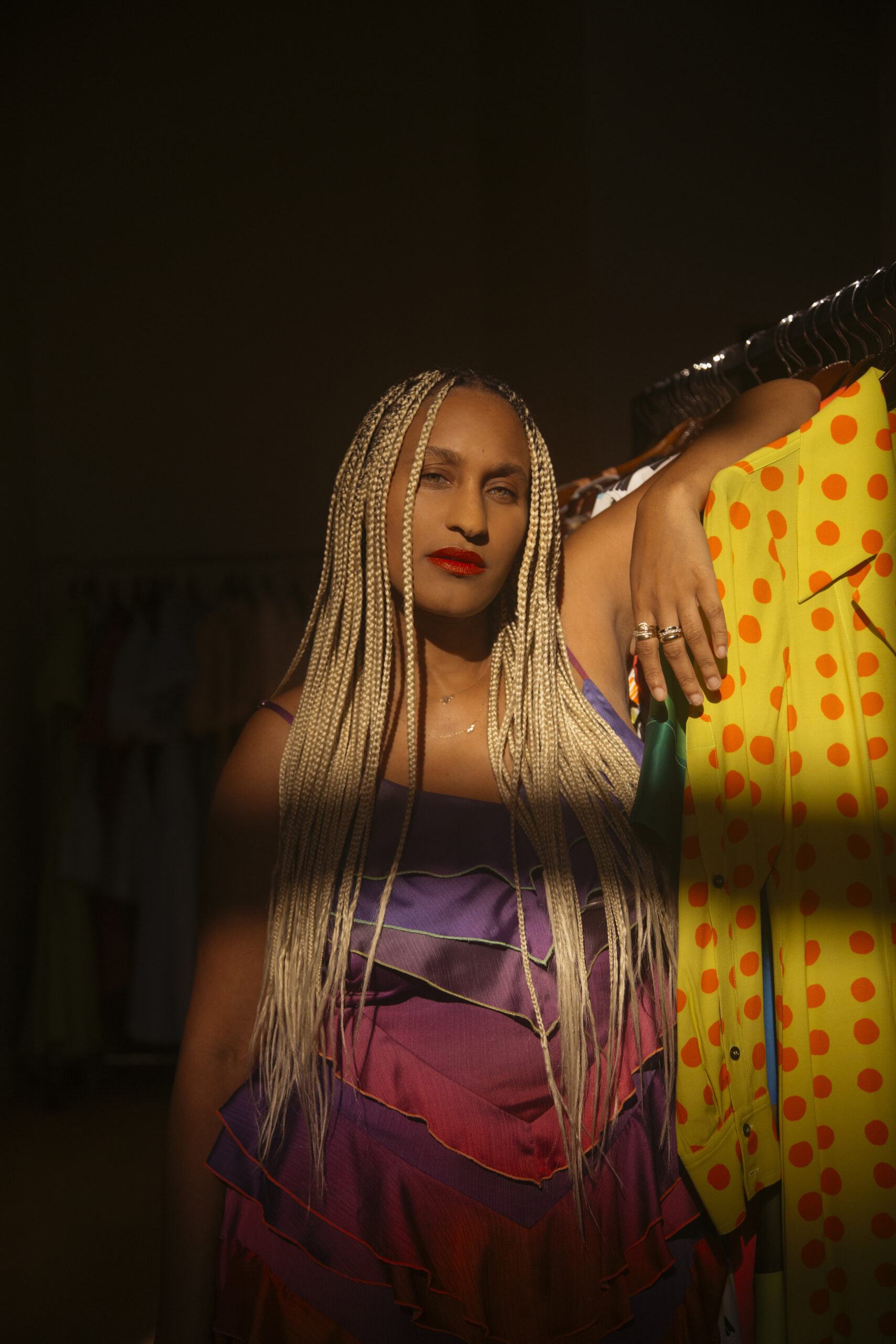
This work, though, is not a one-time stamp of approval for employees and companies. Dr. Cadet instead stresses the need for everyday work, for everyone, just like daily hygiene: “brushing their teeth, putting on their deodorant, and checking their bias and privilege.” The work with Change Cadet isn’t easy, and it isn’t the whole of reality, and that’s why she tells stories.
Whether through Change Cadet or REP CO (Represent Collaborative), Dr. Cadet tells stories as a way to illuminate the path to belonging. For the Black Truth Project, she directed a series of interviews featuring women, men, immigrants, and even olympians that serve as a “proof of the existence and the multitude of black people” by celebrating “the spectrum and the inbetween when we talk black truth.”
She gets to black truth by holding important conversations, like those on the Change Cadet Podcast. Dr. Cadet’s favorite episode was a conversation with Adrienne Kimball. In the episode titled Episode 18: For White Women, Dr. Cadet draws a distinction between ally and accomplice. She emphasizes that an “ally is someone who is learning about their privilege” while an “accomplice is someone who understands their privilege and uses it for good.” While an ally might shy away from taking action to fight white supremacy when it’s uncomfortable for them, an accomplice doesn’t back down and pushes through to dismantle racism. BIPOC people do not have the privilege to decide when they experience discrimination, she explains, so why should white people get to decide when to fight it? The ideal accomplice “knows when to listen, when to engage, and when to take time to process.”

Belonging is about being a part of a group, and Dr. Cadet is deeply connected to her communities. Her fierce creativity and interest in design has connected her to fashion: She glows when talking about black designers and credits Oakland’s Sherri McMullen and her high-end, cutting-edge boutique clothing store for exposing her to many of her favorites.
While her current crush might be Christopher John Rogers, she can’t get enough of Stella Jean. Jean, Giorgio Armani’s protégé, is the only black designer in the Italian Chamber of Fashion and honors her Italian and Haitian roots with her bright, colorful patterns. Dr. Cadet also applauds Beyoncé’s work with her Ivy Park brand alongside Adidas, and Knowles’ demand in contract that Adidas would hire a diverse design team after other brands could not commit to the same goal. Dr. Cadet is even currently scheming about her own capsule collection, which she hopes to release soon. But her imprint is already evident: Hill House Home, a New York-based brand named their Akilah Nap Dress after her.
Oakland is her home, where she is part of something. A city she cherishes and fiercely protects, she loves seeing areas come alive, like the Uptown Arts District and Oscar Grant Plaza, but worries about gentrification as the area clings to its diverse past. She waxes poetic about the bustling downtown of Broadway and Telegraph streets, the ever changing mural art, the Black Panther history, the street tacos at Cholita Linda, and the Lake Merritt farmer’s market.

Her favorite part of Oakland just might be the sensory experience of it all. “Oakland is a person within itself, with so much history,” she says. “The sound of the motorcycles, the lowriders, and the scrapers… the smell of weed in the air.”
“This is the place that has allowed me to be my true authentic self,” she says. This is where she belongs.
~
Dr. Akilah Cadet is working on her upcoming book, My Love Language is Dismantling White Supremacy, set to be released in 2024. True to form, Dr. Cadet has already established a number of non-negotiables for the book. They include styling by the aforementioned Sherri McMullen, photography by the iconic Adrain Octavius Walker, and typography by her good friend and our neighbor in SF, George McCalman.
